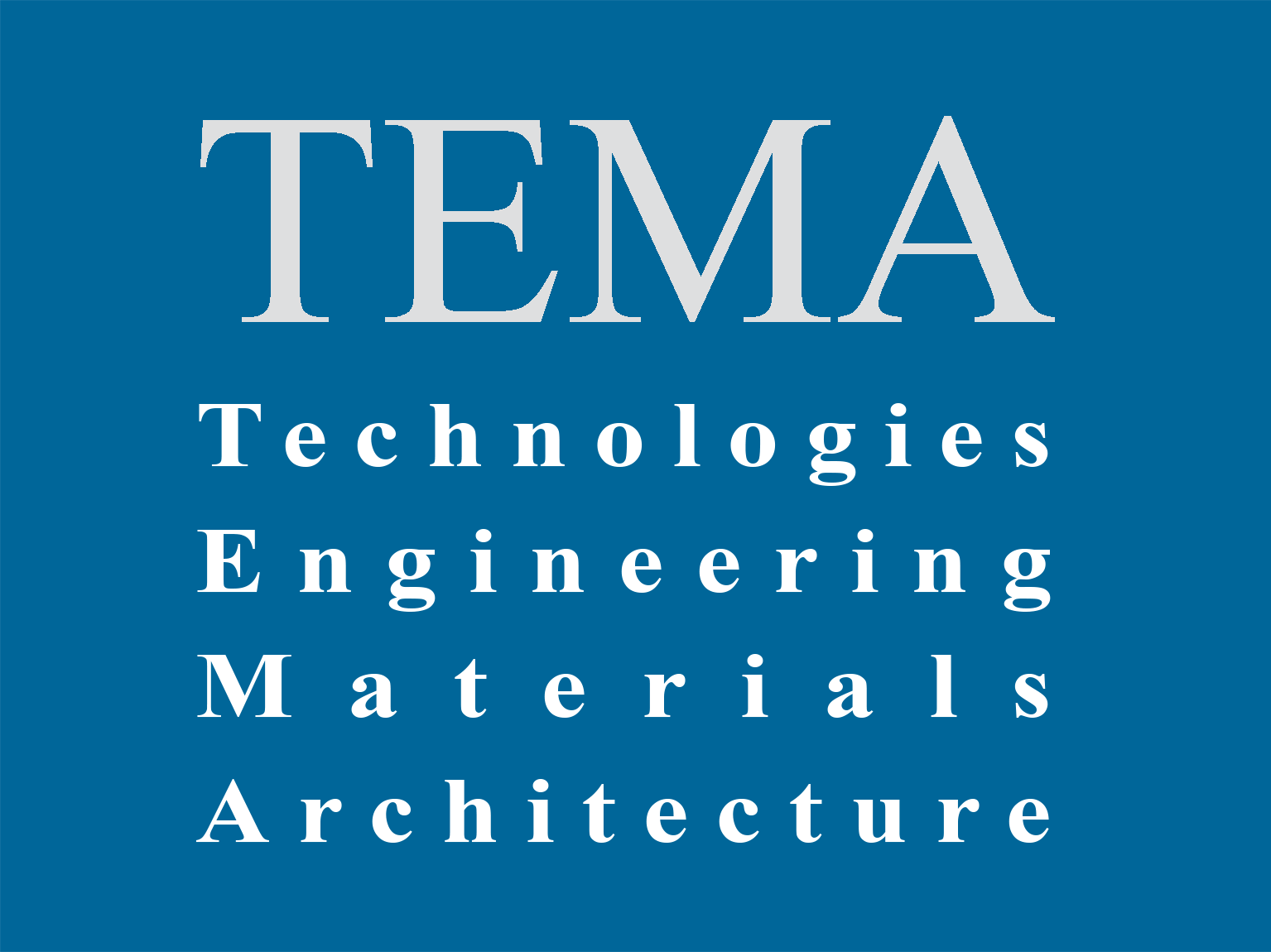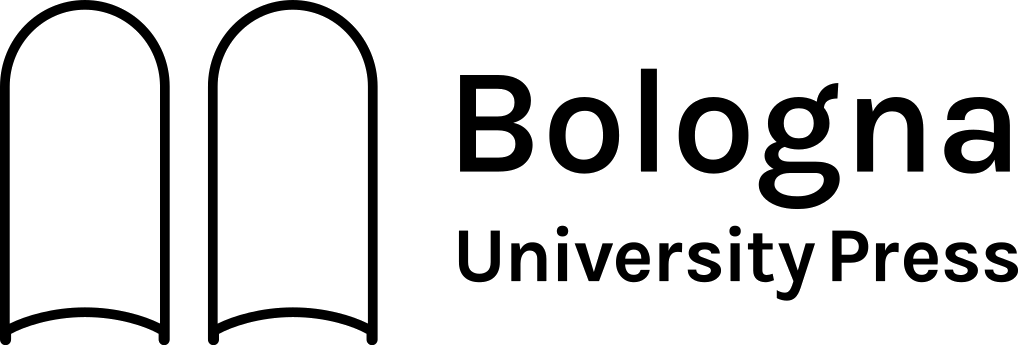TEMA’s ethical statements are based on the BEST PRACTICE GUIDELINES FOR JOURNAL EDITORS ISSUED BY THE COMMITTEE ON PUBLICATION ETHICS (COPE) (http://publicationethics.org/resources/guidelines).
TEMA, Journal of Technologies, Engineering, Materials, and Architecture, founded in 2015, is the official open-access scientific journal of the Italian Society of Architectural Engineering (Ar.Tec. –https://www.artecweb.org/).
TEMA (e-ISSN 2421-4574) is a scientific journal aimed at the international architectural and engineering community that promotes studies on building construction history, the development of methods and tools for the building’s performance analysis, research in the field of traditional and innovative technologies for architectural design, and strategies for the conservation of the built heritage.
TEMA is the scientific journal of the disciplinary sector ICAR/10 ARCHITECTURAL ENGINEERING, recognized by MUR (Ministry of University and Research) and published by Ar.Tec. (https://www.artecweb.org/) with the aid of BUP (Bologna University Press – https://buponline.com/riviste/) as publisher partner.
TEMA is a scientific journal of reference for the disciplinary area No. 08 – “Engineering and Architecture” issued by MUR (Ministry of University and Research)” and accredited as a Class A journal by ANVUR (National Agency for the Evaluation of University and Research).
The primary objectives of the TEMA journal are:
- the cultural and professional growth of scholars, researchers, and operators in the field of construction and architecture by spreading the knowledge of the results achieved by the scientific community itself;
- the dissemination of research results in the building and architecture sector at the national and international level, with specific reference to three thematic areas:
- CONSTRUCTION HISTORY AND PRESERVATION;
- CONSTRUCTION AND BUILDING PERFORMANCE;
- BUILDING DESIGN AND TECHNOLOGIES;
- the creation of a scientific debate based on the freedom of research in the field of construction and architecture.
TEMA is a peer-reviewed journal that is published biannually online at: https://rivistatema.com.
TEMA also accepts technical notes and book reviews.
TEMA publishes using EDITORIAL MANAGER, cloud-based manuscript submission and peer-review tracking system.
TEMA is an OPEN ACCESS journal whose scientific contents can be fully consulted by all users without any registration or payment fees in order to make research freely available and thus promote the dissemination of knowledge at the international level.
TEMA is also disseminated to the scientific and professional community in the architectural and engineering sector through MEDIA PARTNERS.
TEMA does not earn money from selling its publications in digital or paper format.
TEMA applies an Article Processing Charge (APC) only if the contribution is accepted for publication after the double-blind peer review process and the possible manuscript revision in order to cover the costs of journal production and management and the peer review manuscript evaluation process.
The contribution for the publication of each article is:
- euro 300,00 for Ar.Tec. Members;
- euro 400,00 for authors who are not Ar.Tec. Members.
Article No. 4 of Presidential Decree No. 633/1972 exempts these amounts from VAT.
A single APC is required even if there is more than one author for a single article.
A discounted APC is applied if at least one of the authors is an Ar.Tec. Member.
The contribution must be paid to Ar.Tec. following the instructions sent to the authors together with the notification of acceptance of the work for publication.
Editorial independence
TEMA ensures that no commercial activity other than scientific dissemination can influence editorial decisions.
Scientific validation
TEMA is committed to ensuring that the process of scientific validation of contributions submitted for publication is carried out through objective and fair double-blind peer review and to avoiding any actual or potential conflict of interest between the Editor, the review staff, and the reviewed material. To maintain anonymity, only the Managing Editor knows the reviewers’ identities. The review procedure will be carefully examined. Any deviations from the above-mentioned rules should be reported directly to the Editor-in-chief, who firmly undertakes to resolve such issues proactively.
Publishing
TEMA ensures that the procedure for publishing contributions validated through the unbiased and fair double-blind peer review process is carried out in agreement with the Editor and that this is always subject to compliance with the legal requirements in force at the time regarding defamation, copyright infringement, and plagiarism. The publisher may consult with other publishers or reviewers in making this decision.
Confidentiality
TEMA ensures that the Editor does not disclose any information about a submitted manuscript to anyone other than the corresponding author, reviewers, potential reviewers, other editorial consultants, and, where applicable, the publisher.
Conflicts of interest and disclosure
TEMA ensures that the contents of a contribution submitted for publication cannot be used by the publisher without the author’s express written permission, even in the absence of publication. Confidential information or ideas obtained through peer review are confidential and unusable.
TEMA guarantees a pre and post-publication verification of the contributions to check for any conflicts of interest between the Editor and the authors or, in general, between the figures operating in the content review or validation process.
Should the verification process highlight potential critical elements, TEMA undertakes to implement actions to protect the transparency of information and the correctness of the work through the retraction and correction of the contents if published.
In the same way, in the case of complaints by authors or other persons interested in the publication of a scientific contribution, in order to guarantee the traceability of information TEMA undertakes to promote a process of verification of the motivations through an internal investigation of the Editor and to transmit the results to the interested parties by written communication.
Confidentiality
TEMA is committed to ensuring that reviewers are informed of the duties and obligations of the audit process and the degree of confidentiality required. All articles received for review must be treated as confidential documents. Reviewers must not share the review or article information with anyone or contact the authors directly without the Editor’s permission. Articles not published by a reviewer may not be used without the author’s express written consent. Information relating to the peer review process is confidential and cannot be used for personal use.
Accuracy
TEMA ensures that the reviewers identify the documentary sources used in an article subject to revision even in the absence of an explicit reference by the author and that any citation corresponds to the contents covered in the dissertation of any nature and type.
TEMA ensures that reviewers identify any significant similarity or overlap between the article under review and any other published document they are aware of and, if this is the case, report it to the Editor.
TEMA ensures that reviewers operate according to standards of objectivity and that substantive assessments of the contents of the article under review do not contain arbitrary formulations that harm the scientific dignity of the author or that are not sufficiently detailed.
Promptness
TEMA ensures that, in the event that an reviewer considers that he/she is not qualified to perform the review correctly or that he/she is unable to carry it out within the time limits established by the review process, the Editor will promptly replace him/her with another reviewer deemed suitable.
Conflicts of interest
TEMA is committed to ensuring that reviewers do not have competing, collaborative or other relationships or connections with any of the authors submitting articles subject to the review process.
Qualification standards
Articles submitted by authors must meet qualified publication standards with respect to both completeness and accuracy of content, as well as the method of presentation of the article, in order to allow a scientific comparison among peers. In the event of a significant error or inaccuracy in a previously published article, it is the author’s responsibility to inform the publisher of the journal in order to retract or correct the contents. In the event that the publisher is informed by third parties of a significant error in a published article, it is the author’s responsibility to promptly withdraw or correct the paper or provide evidence to the Editor of the correctness of the original article. Fraudulent or knowingly inaccurate statements, if identified, are grounds for exclusion from the review process or withdrawal of the article by the Editor.
Originality
Authors guarantee that their works are entirely original or that any reference to other authors’ intellectual products, both textual and citational, must be unambiguously expressed within the article. Publication of an article that has been submitted simultaneously to another publisher with the same or even similar contents will not be accepted if it is deemed substantial to the research findings and results. Fraudulent or knowingly inaccurate statements, if identified, are grounds for exclusion from the review process or withdrawal of the article by the Editor.
Plagiarism
The types of plagiarism are manifold, from the most common forms of attribution of authorship to the paraphrasing of the contents of the study, to the claim of authorship of scientific results. In all its forms, plagiarism is unethical editorial behavior that, if identified, grounds for exclusion from the review process or withdrawal of the article by the Editor.
Paternity
Authorship of the article is attributed to the authors and co-authors if all of them have made a significant contribution to both the conception and treatment of the study. Any collaborators who made conceptual and operational contributions must be appropriately mentioned. Authors must ensure that the article submitted for review has been reviewed and approved by all the people who participated in the drafting of the article or who were actively involved in the research activity subject to publication.









